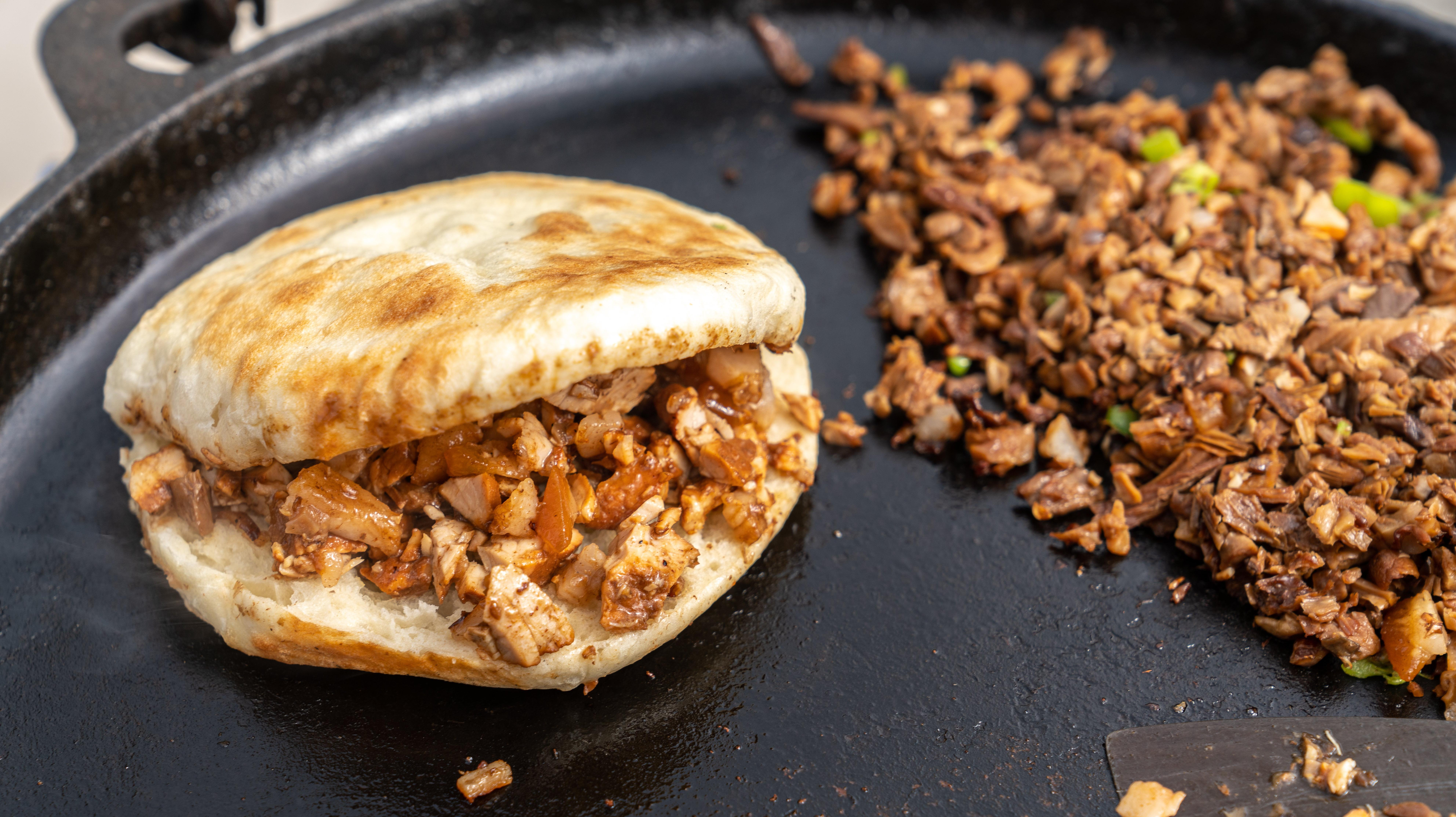How TikTok Resurrected The World's Oldest Sandwich
The TikTok @sandwichesofhistory proves just how delicious the past can be.
Sure, a sandwich seems like a simple dish: just a couple pieces of bread, some filling, and bam, you've got yourself a meal. But in its simplicity there is complexity, because there are an endless number of combinations of bread, filling, sauces, and toppings that can make the perfect sandwich. This is made abundantly clear by every last post on the @sandwichesofhistory TikTok page.
What is the @sandwichesofhistory TikTok?
Barry Enderwick eats his way through historic sandwiches on @sandwichesofhistory, an account started in 2021 with a recipe for a raw oyster sandwich pulled from a turn-of-the-20th-century cookbook. There's nothing fancy or elaborate about the videos. It's just a man in his kitchen giving some new lunches a try and offering up his honest opinion of each bite.
The format must strike a chord, because the page now has more than 3.1 million views on videos of Enderwick preparing and eating everything from a sardine sandwich to a hot dogwich, all with a side of history from one of many cookbooks. He's even selling Sandwiches of History merch for the diehard fans.
A brief history of the sandwich
No one really knows who first put something between two pieces of bread, but according to the History Channel, the first written description may be in The Haggadah. The Jewish text details first-century rabbi Hillel the Elder making a meal using Paschal lamb, bitter herbs, and unleavened matzoh bread.
Flatbread has long been a part of the culinary culture of the Middle East and the Mediterranean, and in fact that region may be where John Montagu, aka the Earl of Sandwich, first got his hands on the snack. And while many credit Montagu as the namesake for the sandwich because of this, the first written use of the word actually makes no mention of the Earl at all. On November 24, 1762, English historian Edward Gibbon wrote in his diary about seeing men eat sandwiches.
The first known recipe for the iconic peanut butter and jelly sandwich was found in the 1901 cookbook The Boston Cooking School Magazine of Culinary Science & Domestic Economics, and from there the sandwich became a staple of American cuisine, popping up in cookbooks that Enderwick still references today for his TikTok. But the earliest sandwich he's made for @sandwichesofhistory predates any of these cookbooks and even the Earl himself.
The ancient Chinese Rou Jia Mo sandwich, then and now
The Rou Jia Mo is a Chinese sandwich that was created around 200 B.C. and traditionally featured beef or lamb as the filling between pieces of baijimo, essentially a Chinese flatbread. It's still commonly eaten as a street food today, though pork belly is now the go-to meat, but for this video, Enderwick sticks to the centuries-old recipe to give it a shot, even making the bread from scratch.
The meat is mixed with corn starch, soy sauce, and sesame oil until the cornstarch is dissolved, then seasoned with cumin, cinnamon, fennel seed, nutmeg, and cloves. Next, the beef is seared and cooked up with ginger, white onion, and green onion. The end result gets scooped into those homemade buns.
Enderwick makes it all look easy, in part because it is—that's the joy of sandwiches, especially ones dating back so far that were made before the advent of modern cooking tools. When Enderwick takes the final bite, he surprises even himself with how tasty it is. Another step to his process is "plussing up" the sandwiches from history, and in this case he gets help from a friend to embrace Rou Jia Mo's nickname as the "Chinese hamburger" by adding pickled mustard greens—a topping meant to replicate the taste and texture of two classic hamburger toppings (pickles and mustard) while using ingredients typical of Chinese cuisine.
In the end, this sandwich holds up amazingly well, garnering a coveted 10 out of 10 rating. When it comes to sandwich recipes, history can and should most certainly repeat itself.
